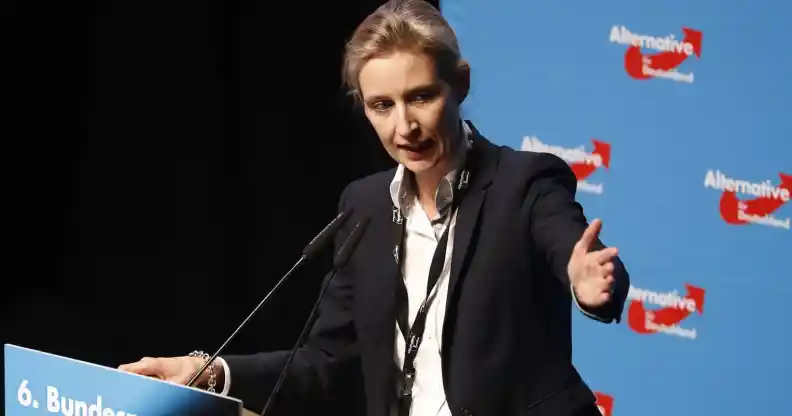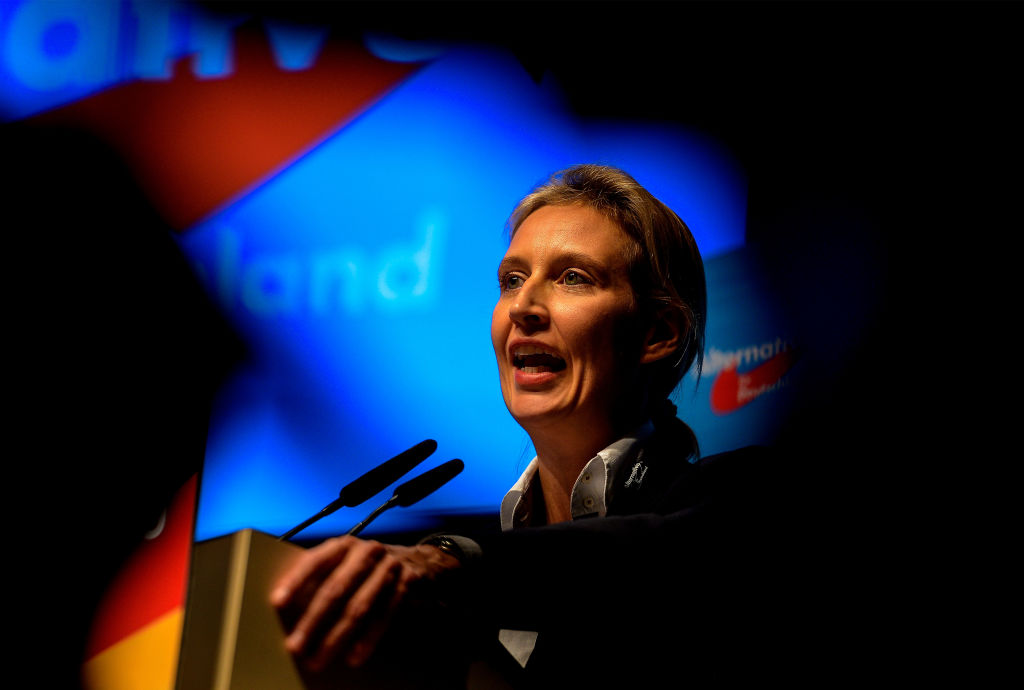Germany’s far-right AfD picks lesbian leader for election campaign

Germany’s far-right Alternative für Deutschland (AfD) has picked a 38-year-old lesbian as candidate for Chancellor the upcoming elections.
The extreme anti-Muslim party has made gains in recent German opinion polls as far-right sentiment surges across Western Europe.
At the party’s conference this week, out politician Alice Weidel was picked as the candidate for Chancellor in the upcoming election, jointly with 76-year-old party spokesman Alexander Gauland.
The appointment comes after party leader Frauke Petry stepped down as AfD’s candidate for Chancellor, following months of in-fighting.
Ms Weidel, 38, is a former investment banker for Goldman Sachs and Allianz Global Investors Europe.

The candidate, who is considered a relative liberal within the party, has two children with her same-sex partner.
Ms Weidel has always dismissed accusations of hypocrisy for backing a party that remains staunchly opposed to same-sex marriage and adoption – while herself raising children a gay family.
Though she is gay, she is far from an LGBT activist, declaring that “political correctness belongs on the rubbish heap of history.”
She is not alone in being gay and in the leadership of a hardline nationalist movement.
The deputy of France’s Front National, Florian Philippot, was outed as gay in 2014, while the UK Independence Party has dismissed complaints about diversity because its deputy leader, Peter Whittle, is an “open homosexual”.
Meanwhile, the Front National and Alternative für Deutschland both continue to oppose LGBT equality.
Set to take place in September, the country’s federal elections are set to be a bitter contest as Chancellor Angela Merkel attempts to cling on to power despite public hostility to her immigration policies.
As well as the risk of an AfD surge, Mrs Merkel also faces a challenge from the left, with Martin Schulz of the Social Democratic Party expected to make gains.
Mr Schulz has sought to put same-sex marriage on the political agenda in the run-up to the election by putting forward a draft bill, highlighting Merkel’s refusal to consider the measure.
Ahead of the election, Merkel will be keen not to alienate her traditional right-wing voter base – but she will also want to woo centre-ground voters who are supporting the SPD in greater numbers.
Chancellor Merkel has repeatedly ruled out calls to introduce equal marriage, saying: “For me, marriage is a man and a woman living together.”
The upper house of the German Parliament has previously passed symbolic motions calling for same-sex marriage.
Unlike the Bundestag (main chamber of the Germany Parliament), where Chancellor Merkel’s Grand Coalition holds control, the Bundesrat (equivalent to the Upper House/Senate) is controlled by the 16 state governments, with a left-wing majority.

